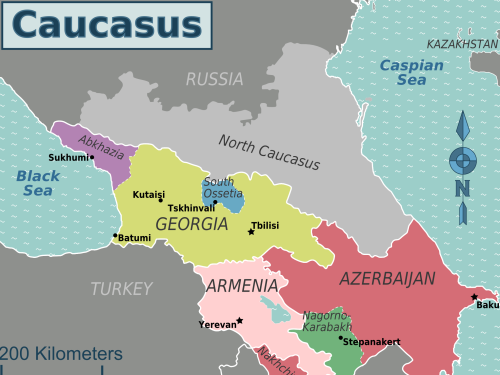
This article was originally published by the World Policy Institute on 22 April 2015.
An April 2 meeting between the defense ministers of Turkey, Georgia, and Azerbaijan might have easily passed as routine. Yet in a region like the Caucasus, fraught with deeply entrenched interstate rivalries, this summit could hardly be described as inconsequential. At the meeting, Azerbaijani Defense Minister Zakir Hasanov identified Armenia as a regional threat, remarking that it “is the only state in the region which lays territorial claims to our countries.” The same day, Russian fighter jets stationed in Armenia began three-day drills. Though these two events probably coincided by chance, they illustrate two distinct – potentially competing – regional orders in the South Caucasus: a deepening Turkey-Georgia-Azerbaijan coordination and a historic Russian presence represented by the Kremlin’s close alliance with Armenia.
